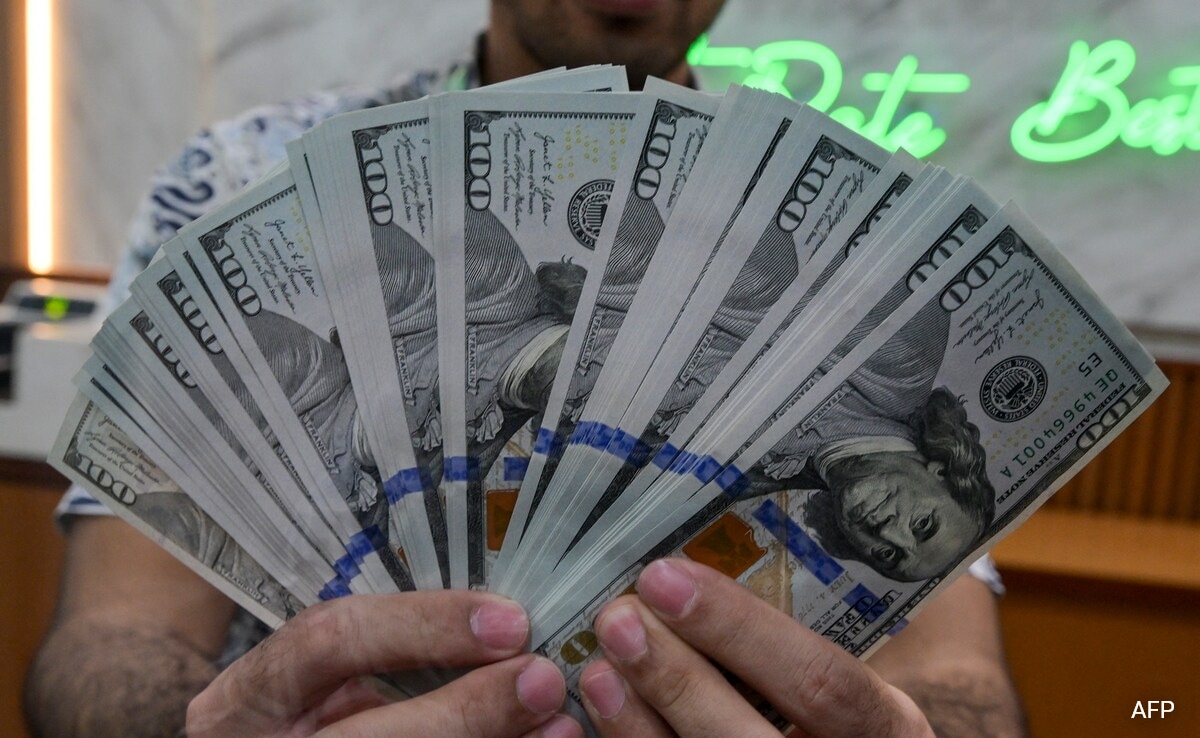In a historic turn of events, the global stock market was sent spiraling into a colossal $10 trillion downturn following US President Donald Trump's imposition of punitive tariffs. A report by Bloomberg revealed that this financial devastation was roughly equivalent to just over half of the GDP of the entire European Union. Trump's announcement of sweeping tariffs ignited a chain reaction of market volatility, with stocks, bonds, and commodities experiencing wild fluctuations driven by mounting concerns over a potential recession and the looming specter of a full-blown global trade war.
The aftermath of Trump's tariff bombshell was most keenly felt on Wall Street, as the S&P 500 witnessed its worst performance since the conclusion of World War II – with three consecutive declines of 4 percent, a grave situation that hasn't been seen in nearly a century. To put things into perspective, the losses incurred during this tumultuous period outstripped the financial toll of catastrophes like the 2020 Covid pandemic, the collapse of Lehman Brothers, and the turmoil of 1998, as reported by El Pais.
While the repercussions of this market upheaval reverberated globally, the impact on the US stock market was particularly severe. The tech behemoths, often referred to as the "Magnificent Seven" – Apple, Google, Nvidia, Meta, Amazon, Microsoft, and Tesla – bore the brunt of the financial maelstrom. The report by El Pais detailed how these tech giants collectively hemorrhaged a staggering $1.6 trillion since Trump's tariff announcement, with Apple suffering the most substantial blow by losing over half a trillion dollars, representing about 16.8 percent of its total value during this period. This significant decline was largely attributed to the direct impact of the tariffs on the company, given that Apple's entire production chain is situated in Asia.
The ramifications of the market turmoil were not confined to US shores, as other nations also witnessed substantial financial losses. In Saudi Arabia, the state oil giant Aramco saw a market value decline of $138 billion or 8 percent in just three days. European corporations, though smaller in scale compared to their American counterparts, were not immune to the upheaval. Companies like HSBC and Shell cUKc, Siemens cGermanyc, LVMH cFrancec, Total cFrancec, SAP cGermanyc, Accenture cIrelandc, and Novo Nordisk cDenmarkc found themselves among the list of top losers.
Furthermore, Asian companies also reeled under the impact of the market downturn, with industry giants like China's Alibaba, Japan's Toyota and Mitsubishi, Taiwan's TSMC, and South Korea's Samsung collectively shedding billions of dollars in just a matter of days. The intensity of the market turmoil initially seemed insurmountable, but a surprising turn of events came when President Trump abruptly decided to halt tariffs on most countries, eliciting a wave of optimism across global markets. However, tensions escalated with China as Trump intensified the trade war by raising tariffs on Beijing to a staggering 125 percent, citing a perceived "lack of respect."
Following days of tumult, Wall Street and Asian markets witnessed a notable upswing in response to Trump's tariff halt. This momentary respite was short-lived as Beijing retaliated by imposing a hefty 84 percent tariff on US imports, marking a fresh escalation in the trade impasse between the world's two leading economies. Trump defended his decision, downplaying it as a strategic move designed to maintain flexibility amidst a complex market landscape. The ongoing tit-for-tat between the US and China has raised concerns about the long-term economic repercussions of these tariffs on global trade.
The mounting trade tensions have cast a dark shadow over dozens of economies, constituting the most significant disruption to global trade in recent memory. Trump's recent declaration of a 10 percent tariff on all imports, along with subsequent country-specific tariffs, set the stage for a tumultuous period in international trade. The market turmoil triggered by these tariffs adversely impacted various sectors, including stocks, gold, crude oil, and even cryptocurrencies like Bitcoin, underscoring the widespread ripple effects of these policy decisions.
In conclusion, the spate of tariffs initiated by President Trump, followed by the ensuing market turmoil, exemplifies the far-reaching consequences of trade disputes on the global economy. As countries brace for the impact of these tariffs and navigate the ensuing market instability, the need for diplomatic resolutions and strategic negotiations becomes increasingly paramount to prevent further economic upheaval and foster sustainable growth in the international marketplace.

